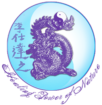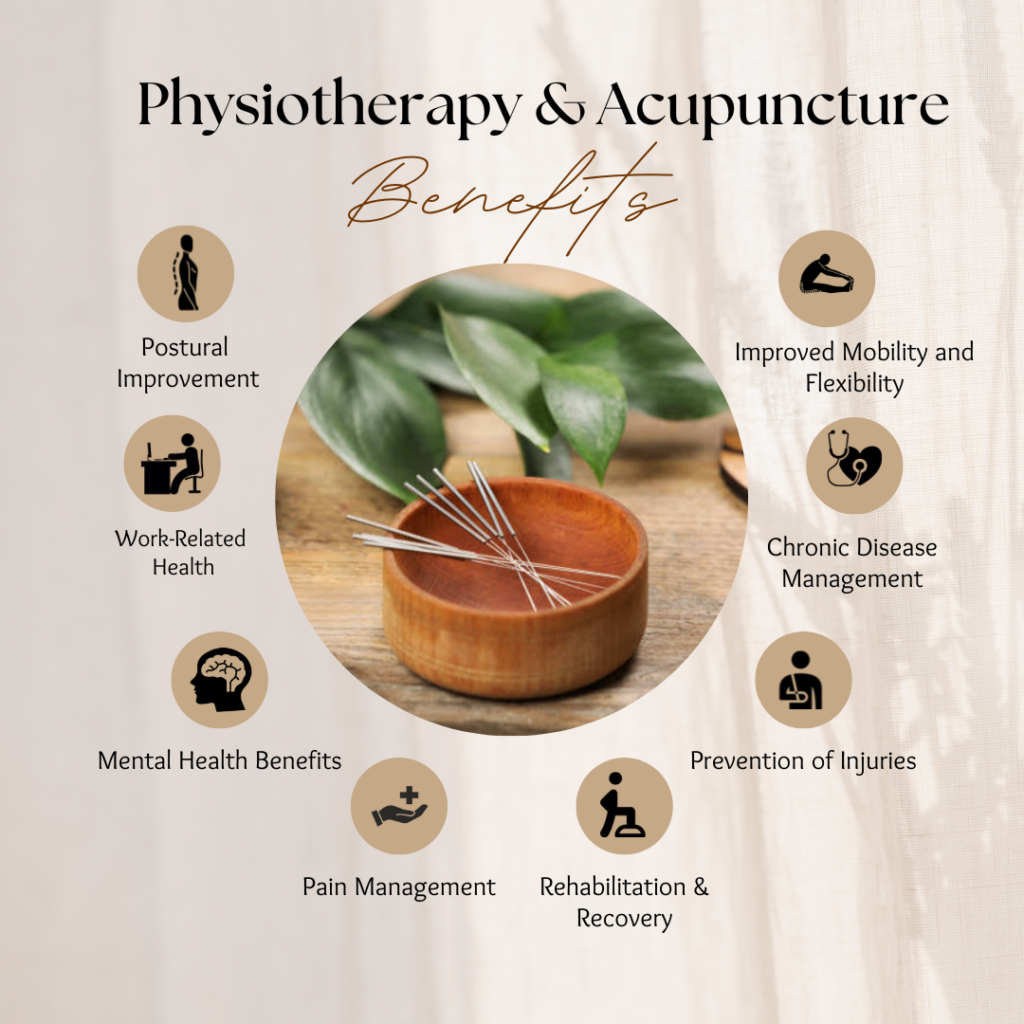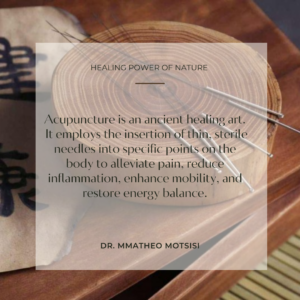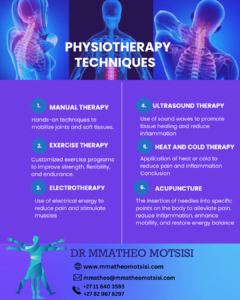Physiotherapy and Acupuncture are hands on therapies that offer a range of benefits to enhance wellbeing:
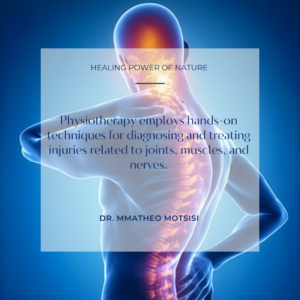
Physiotherapy
- Pain Relief: Physiotherapy techniques such as manual therapy, exercises, and modalities like ultrasound or electrical stimulation can help alleviate pain from various conditions, including musculoskeletal injuries, arthritis, or neurological disorders.
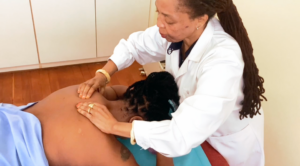
- Improved Mobility and Function: Physiotherapy aims to restore and improve mobility, flexibility, and functional ability, whether it’s after surgery, injury, or due to chronic conditions. Techniques like therapeutic exercises, stretching, and gait training can enhance movement.
Injury Prevention: Physiotherapists can assess movement patterns and identify potential issues that may lead to injury. Through targeted exercises and education, they help individuals improve their biomechanics and reduce the risk of future injuries.
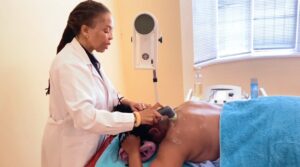
Rehabilitation: Physiotherapy plays a crucial role in the rehabilitation process after surgeries, accidents, or sports injuries. It helps individuals regain strength, coordination, and function, facilitating a faster and more complete recovery.
Management of Chronic Conditions: Physiotherapy can be effective in managing chronic conditions such as osteoarthritis, chronic pain syndromes, stroke, or Parkinson’s disease. It focuses on improving symptoms, maintaining function, and enhancing quality of life.
Acupuncture
Pain Management: Acupuncture is well-known for its analgesic effects. By stimulating specific points on the body, acupuncture can help alleviate acute and chronic pain conditions such as headaches, back pain, osteoarthritis, or fibromyalgia.
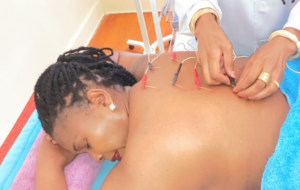
Stress Reduction and Relaxation: Acupuncture sessions often induce a state of deep relaxation, helping to reduce stress, anxiety, and tension. The release of endorphins and serotonin during treatment contributes to an overall sense of well-being and calmness.
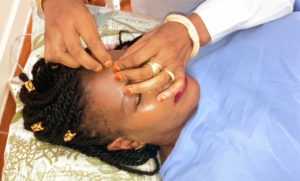
Improved Sleep: Many individuals experience improved sleep quality after acupuncture sessions. By balancing the body’s energy flow (Qi) and addressing underlying imbalances, acupuncture can regulate sleep patterns and promote restful sleep.
Enhanced Mental Health: Acupuncture has been found to have positive effects on mental health conditions such as depression, anxiety, and PTSD. It can help regulate mood, reduce symptoms, and improve overall emotional wellbeing.
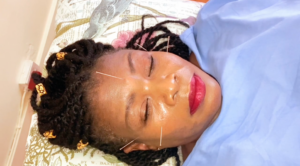
Support for Other Therapies: Acupuncture can complement other wellness practices and medical treatments. It is often used alongside physiotherapy, chiropractic care, or traditional medicine to enhance their effectiveness and promote holistic healing.
Both physiotherapy and acupuncture offer valuable approaches to improving physical, mental, and emotional well-being, and integrating them into a wellness regimen can lead to comprehensive health benefits.
